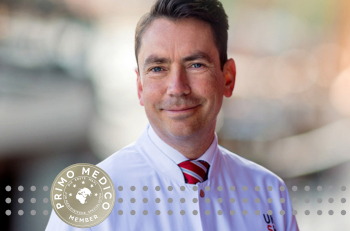Specialists in Oesophageal surgery
5 Specialists found
Information About the Field of Oesophageal surgery
What are the indications for esophageal surgery
Surgery on the esophagus is a treatment option for a variety of diseases. For instance, gastroesophageal reflux disease (GERD) may be managed with surgery after medication fails to treat the condition. GERD involves repeated leakage of gastric acid up into the esophagus due to an insufficient sealing at the junction between the two organs. Consequently, patients experience severe heartburn and pain behind the breastbone.
Also, the presence of diverticula can lead to surgery on the esophagus. Diverticula are outpouchings of the esophageal mucosa that can produce difficulty swallowing, among other problems.
Surgery can be considered for achalasia as well. which is a condition characterized by excessive obstruction between the esophagus and the stomach, impeding the passage of food into the stomach. This may lead to abnormal widening of the esophagus above the muscle or, in the worst case, may promote malignant transformation.
Esophageal surgeries are employed very frequently for treating esophageal cancer. The aim is to remove the malignant areas of the esophagus completely and thereby cure the patient.
What surgical methods are available?
Various surgical methods exist, based on the type of disease.
For one, fundoplication is a procedure used to treat gastroesophageal reflux disease. It involves reinforcing the closure of the esophagus by looping the upper part of the stomach around the esophagus and then stitching it up. The purpose of this is to prevent gastric acid from flowing back into the esophagus.
On the other hand, some surgeries are done to split the muscular closure between the esophagus and the stomach, which are referred to as myotomies. Here, the purpose is to cure achalasia and facilitate the passage of food into the stomach.
It is also possible to perform endoscopic surgery, which does not require making an incision from the outside. Via the patients mouth, a tube is introduced into the esophagus. Given its low rate of complications, it is the preferred method for removal of diverticula or superficial tumors of the esophagus. In case the tumor is detected early on and has not grown into deeper layers of the tissue yet, it is enough to scrape off the superficial mucosal layers while sparing the esophagus.
However, should the tumor be more advanced with deeper tissue penetration, affected esophageal segments or even the entire esophagus have to be removed. This is the only possibility to remove all of the cancerous tissue. Such procedures can be carried out using open surgery or the laparoscopic approach, which is a minimally invasive technique that is performed with specialized long instruments introduced via small skin incisions.
Risks and associated complications
For patients with a poor health status or severe underlying diseases, esophageal surgery poses a risk. These include severe cardiac insufficiency or chronic lung diseases.
Among the complications are bleedings, infections and injuries to other gastrointestinal organs. These are, however, encountered only rarely.
After the partial or complete removal of the espophagus, the sutures between esophagus and stomach or intestines may become leahy. This is referred to as insufficiency of anastomotic leakage. Symptoms such as bile reflux or heartburn can arise, too.
Procedure and duration of an esophageal surgery
Both surgical method as well as the goal of surgery dictate the duration of course of the procedure.
For example, in case a tumor is treated with a partial or complete removal of the esophagus, the surgeon can opt for an approach through the lateral chest or via the abdomen. The decision depends on the tumor location. If it is situated in the upper portion of the esophagus, access through the chest is the preferred way. If it sits in the lower portion, then opening the abdomen is more reasonable.
Next, the surgeon will remove either parts of or the whole esophagus. It is important to maintain a safety margin, meaning that not only the visible portions of the tumor but also healthy tissue surrounding the tumor is removed. This is how surgeons can make sure that the entire tumor is removed, if possible, as some cancerous cells may have infiltrated tissues which look normal on inspection. This technique prevents repeated growth of the tumor.
After the removal, the remaining esophagus is connected to the stomach. To reach this, the stomach is pulled upwards and is sutured to the esophagus. In case this is not possible, a short segment of small intestines can be used.
Follow-up care and prognosis
The treatment of esophageal cancer depends on whether the tumor was resected completely. If so, no further treatment is generally necessary.
However, if the complete removal was not possible, surgery may be followed by a combination of chemo- and radiotherapy aimed at reducing the tumor size and preventing its metastatic spread.
Chemoradiotherapy can also be initiated prior to surgery to improve the patient’s prognosis.
What clinics and doctors specialize in lung operations?
Physicians with different specializations can perform surgeries of the esophagus. Mostly, they are general and visceral surgeons which focus on surgeries of the abdominal organs. Specialists for gastroenterology can also diagnose the respective condition.
If you're in need of a doctor, you expect the best medical care possible. So of course patients are curious to find out what clinic to go to. As there is no objective way to answer this question and a legitimate doctor would never claim to be the best, patients must rely on a doctor's experience.
Let us help you find an expert for your condition. All listed doctors and clinics have been reviewed by us for their outstanding specialization in the field of esophageal operations and are looking forward to your inquiry or wish for treatment.
Sources:
Medical Articles
Pancreatic Cancer, a Death Sentence, Prof. Tobias Keck?
Pancreatic cancer is considered one of the most feared types of cancer. Is the term “death sentence” still justified today? What progress has been…






